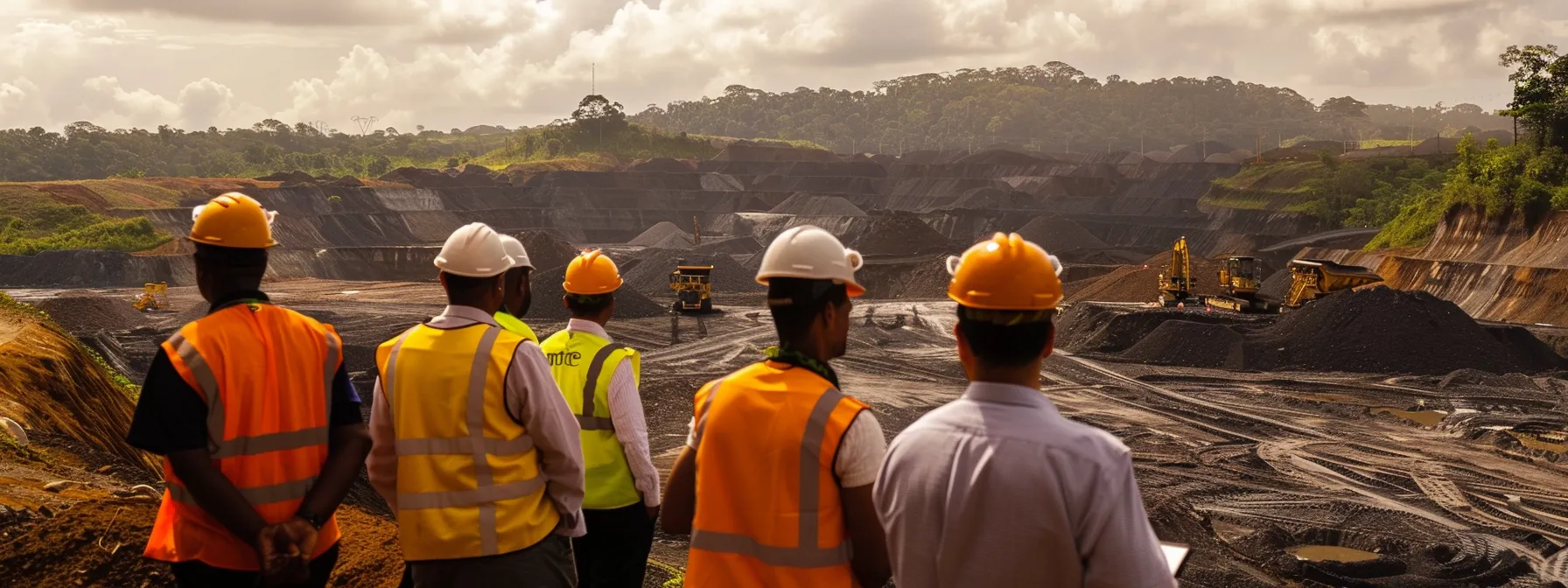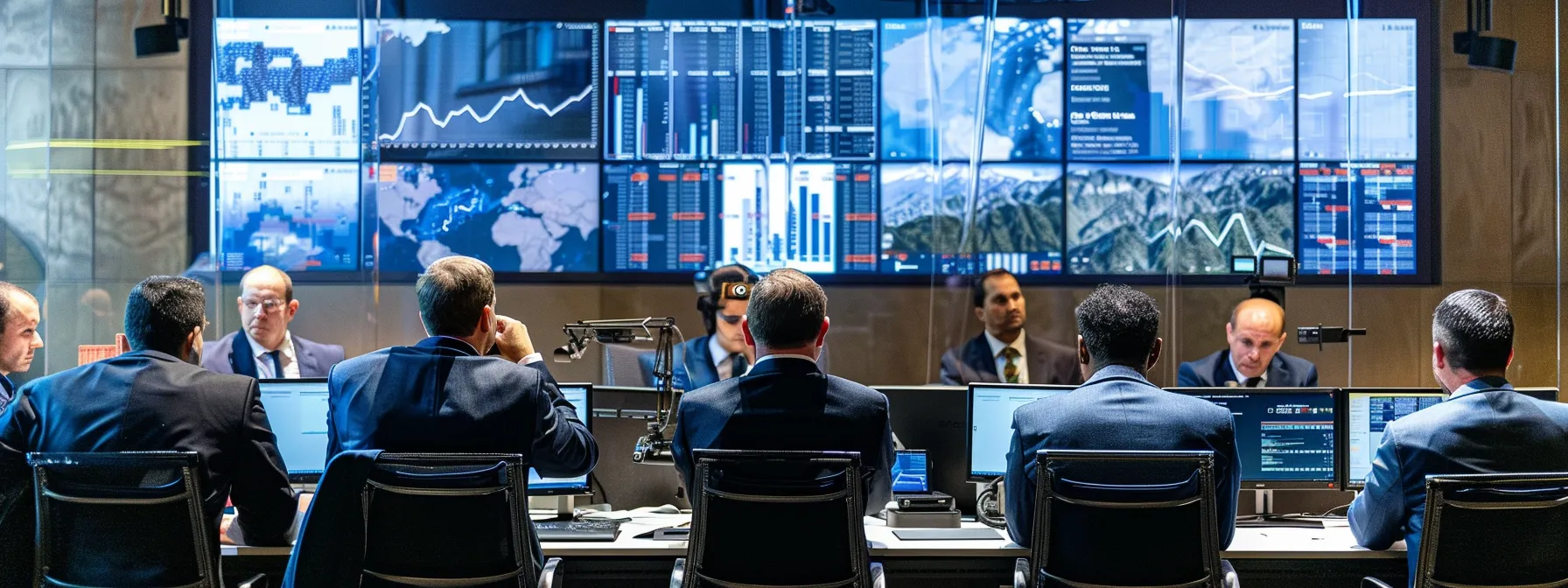Mining Disputes and ISDS: A Comprehensive Sector Analysis
Mining disputes can significantly impact foreign direct investors, often leading to costly legal battles. Understanding the role of the International Centre for Settlement of Investment Disputes (ICSID) and the legal frameworks surrounding these disputes is crucial for navigating this complex landscape. This article will explore common causes of mining disputes, key case studies, and strategies for mitigating risks. By engaging with this content, you will gain insights into how to protect your investments and ensure compliance with trade agreements while balancing environmental protection concerns.
Essential Key Takeaways for Navigating Mining Disputes and ISDS
- ISDS mechanisms protect foreign investors’ rights in the mining sector against host state actions
- Regulatory changes can lead to disputes, making understanding local laws essential for investors
- Engaging with local communities fosters positive relationships and mitigates risks of opposition
- Corporate social responsibility initiatives enhance reputation and reduce the likelihood of disputes
- Emerging ESG factors are reshaping mining regulations, requiring compliance for sustainable operations
Understanding the Role of ISDS in Mining Disputes

Investor-State Dispute Settlement (isds) mechanisms play a crucial role in the mining industry by providing a legal framework for resolving conflicts between foreign investors and host states. You will learn how ISDS protects the rights of investors, ensures fair judgment, and addresses issues related to nationality. Understanding these aspects is essential for navigating disputes, especially in sectors like renewable energy.
Defining Investor-State Dispute Settlement Mechanisms
Investor-State Dispute Settlement (ISDS) mechanisms are essential tools in international law that facilitate the resolution of conflicts between foreign investors and host states. In the context of the fossil fuel industry, these mechanisms provide a structured process for investors to appeal decisions that may adversely affect their investments, such as regulatory changes or expropriation. By utilizing a comprehensive database of past cases, you can better understand how ISDS has been applied in similar situations, particularly in the oil sector.
ISDS mechanisms ensure that investors have a fair opportunity to present their cases in an impartial forum, which is crucial for maintaining confidence in international investments. For instance, if a mining company faces unexpected regulatory hurdles, ISDS allows them to seek redress under international law, thereby protecting their rights and interests. This legal framework not only promotes stability in the mining sector but also encourages foreign direct investment by assuring investors that their concerns will be addressed through established legal channels.
Application of ISDS in the Mining Industry
The application of ISDS in the mining industry is vital for protecting foreign direct investment, particularly in high-stakes environments like gold mining. For instance, when companies like Gabriel Resources face regulatory changes that threaten their operations, ISDS provides a mechanism to challenge these decisions under international law. This process not only safeguards the interests of investors but also reinforces the importance of adhering to international human rights law, ensuring that mining activities do not infringe on local communities’ rights.
Moreover, ISDS mechanisms facilitate smoother international trade by offering a reliable avenue for dispute resolution. When conflicts arise, investors can rely on established legal frameworks to seek compensation or remedy, which enhances their confidence in investing in mining projects. This assurance is crucial for attracting further foreign direct investment, as it demonstrates a commitment to fair treatment and legal recourse in the mining sector.
Importance of ISDS for Resolving Mining Conflicts
The importance of ISDS in resolving mining conflicts cannot be overstated, especially in the context of energy development. When disputes arise, ISDS provides a structured legal framework that allows foreign investors to seek redress under international investment law. This mechanism not only protects your investments but also ensures that the principles of sustainability and human rights are upheld, fostering a more stable environment for future projects.
Moreover, ISDS mechanisms reinforce the commitments outlined in various treaties, ensuring that host states adhere to their obligations towards foreign investors. By offering a reliable avenue for dispute resolution, ISDS enhances your confidence in investing in the mining sector. This assurance is vital for attracting further international investment, as it demonstrates a commitment to fair treatment and legal recourse, ultimately benefiting both investors and local communities.
Common Causes of Mining Disputes Under ISDS

Common causes of mining disputes under ISDS often stem from regulatory changes affecting mining operations, environmental and social impact concerns, issues of expropriation and compensation, and disputes over licensing and permits. In regions like Latin America, these factors can significantly influence public policy and the stability of investments. Understanding these causes is essential for navigating the complexities of dispute settlement in the mining sector.
Regulatory Changes Affecting Mining Operations
Regulatory changes can significantly impact mining operations, often leading to disputes under ISDS. For instance, when the Government of Canada implements new regulations aimed at increasing transparency in the exploitation of natural resources, companies like Glencore may find their operations affected. These changes can create uncertainty, prompting investors to seek legal recourse to protect their interests and ensure compliance with international investment agreements.
Moreover, the involvement of civil society in advocating for stricter regulations can further complicate the landscape for mining companies. As public scrutiny increases, regulatory frameworks may shift, leading to potential conflicts between investor rights and community interests. Understanding these dynamics is crucial for foreign investors, as navigating regulatory changes effectively can help mitigate risks associated with mining disputes and enhance long-term investment stability.
Environmental and Social Impact Concerns
Environmental and social impact concerns are significant drivers of mining disputes under ISDS, particularly as the energy transition gains momentum. Investors often face challenges when local communities raise objections based on climate change implications or potential harm to their environment. These concerns can lead to regulatory changes that may not align with existing international investment agreements, prompting investors to seek legal recourse to protect their interests.
Moreover, issues related to corruption can exacerbate these disputes, as investors may encounter obstacles in obtaining necessary permits or licenses. When policies shift due to public pressure or allegations of mismanagement, it can create an unstable investment climate. Understanding these dynamics is essential for you as an investor, as it allows you to navigate the complexities of environmental regulations and community relations effectively:
- Energy transition impacts on mining operations
- Community objections based on climate concerns
- Regulatory changes affecting international investment
- Corruption and its influence on permitting processes
- Importance of understanding local policies
Issues of Expropriation and Compensation
Issues of expropriation and compensation are significant factors in mining disputes under ISDS, particularly when host states alter their policies or regulations. For instance, if a government in the European Union decides to nationalize mining operations without providing adequate compensation, investors may seek recourse through ISDS mechanisms. This situation often arises in the context of the Comprehensive Economic and Trade Agreement, which aims to protect foreign investments while balancing the rights of indigenous peoples and local communities.
When disputes over expropriation occur, it is essential for you as an investor to understand the legal frameworks that govern compensation. Free trade agreements typically outline the standards for fair compensation, ensuring that investors are not left vulnerable to arbitrary state actions. By familiarizing yourself with these agreements, you can better navigate potential conflicts and protect your investments in the mining sector:
- Understanding expropriation risks in mining
- Importance of compensation standards in free trade agreements
- Impact of indigenous peoples‘ rights on mining operations
- Role of ISDS in resolving expropriation disputes
- Strategies for mitigating risks associated with expropriation
Disputes Over Licensing and Permits
Disputes over licensing and permits are common in the mining sector, often arising from changes in regulatory frameworks or the interpretation of environmental law. When you seek to obtain necessary permits, unexpected delays or denials can lead to significant operational setbacks. This situation can create a sense of injustice, especially if the reasons for these changes are not transparent or aligned with the rule of law, impacting your ability to pursue sustainable development in your projects.
Moreover, the complexities surrounding licensing can be exacerbated by local community opposition or shifting government policies. As an investor, understanding the legal landscape is crucial to navigate these challenges effectively. By ensuring compliance with both local regulations and international standards, you can mitigate risks associated with licensing disputes and foster a more stable environment for your energy-related investments:
Key Case Studies in Mining Disputes and ISDS

This section examines key case studies in mining disputes and ISDS, focusing on the Pac Rim v. El Salvador case, which highlights governance issues and contract enforcement. Insights from Bear Creek Mining v. Peru reveal the importance of corporate social responsibility in lawsuits. Additionally, the implications of the Crystallex v. Venezuela dispute provide lessons learned from past ISDS mining cases, emphasizing the need for effective legal strategies.
Analysis of the Pac Rim v. El Salvador Case
The Pac Rim v. El Salvador case serves as a significant example of how ISDS mechanisms operate within the mining sector. In this dispute, the corporation Pac Rim Cayman challenged El Salvador’s decision to deny permits for gold mining, arguing that the denial violated the North American Free Trade Agreement (NAFTA). The case highlights the complexities of balancing corporate interests with environmental and social concerns, as well as the implications of international treaties like the Energy Charter Treaty in protecting investments.
This case also underscores the importance of understanding the legal frameworks that govern mining operations. As you navigate similar disputes, consider how the rulings from the court of appeal can influence future cases and the overall investment climate. The lessons learned from Pac Rim v. El Salvador emphasize the need for corporations to engage in responsible practices and maintain open communication with local communities to mitigate risks associated with regulatory changes and potential conflicts.
Insights From Bear Creek Mining v. Peru
The Bear Creek Mining v. Peru case illustrates the complexities of investor rights under free trade agreements. In this dispute, Bear Creek Mining claimed that the Peruvian government violated its rights by revoking a mining license, which the company argued was an infringement of the investment protections outlined in the free trade agreement between the two nations. The Permanent Court of Arbitration ultimately ruled in favor of Bear Creek, emphasizing the need for clear evidence of government actions that impact investor interests.
This case also highlights the broader implications of colonialism in mining disputes, as it raises questions about the balance between foreign investment and local community rights. As an investor, understanding the outcomes of such cases can guide your approach to compliance and engagement with local stakeholders. The lessons learned from Bear Creek Mining v. Peru can help you navigate similar challenges in the mining sector, ensuring that your investments are protected while respecting the rights of local communities.
Implications of the Crystallex v. Venezuela Dispute
The Crystallex v. Venezuela dispute highlights significant implications for foreign investors regarding state sovereignty and the protection of investments. As a lawyer, you must understand how this case illustrates the tension between a host state’s right to manage its resources and the obligations it has under international investment agreements. The ruling emphasized that while states have sovereignty over their natural resources, they must also respect the legal frameworks that protect foreign investments, which can mitigate risks associated with expropriation.
This case also underscores the importance of infrastructure development in the mining sector and how disputes can arise when governments fail to uphold their commitments. The United Nations Conference on Trade and Development has noted that such conflicts can deter foreign direct investment, as investors seek assurance that their rights will be protected. By analyzing the outcomes of Crystallex v. Venezuela, you can better navigate the complexities of investment risks and advocate for stronger legal protections in your future endeavors.
Lessons Learned From Past ISDS Mining Cases
Lessons learned from past ISDS mining cases highlight the critical role of arbitral tribunals in resolving disputes effectively. For instance, when a foreign investor faces challenges under a bilateral investment treaty, understanding the tribunal‘s approach to international arbitration can provide valuable insights into how similar cases may unfold. This knowledge is essential for you as an investor, as it can guide your strategies in navigating potential conflicts, particularly in sectors impacted by international environmental law and fossil fuel regulations.
Moreover, these cases emphasize the importance of proactive engagement with local communities and compliance with environmental standards. By observing how past disputes have been resolved, you can better appreciate the need for transparency and collaboration in your operations. This approach not only mitigates risks associated with ISDS claims but also fosters a more sustainable investment environment, ultimately benefiting both your interests and the communities in which you operate.
Legal Framework Governing Mining Disputes

The legal framework governing mining disputes is essential for understanding how international investment agreements protect your rights as an investor. This section will cover the role of bilateral and multilateral treaties in establishing jurisdiction, the arbitration rules and bodies that facilitate dispute resolution, and the impact of domestic laws on international claims. You will gain insights into how these elements interact to influence tribunal decisions, annulment processes, and potential damages in mining disputes.
Overview of International Investment Agreements
International Investment Agreements (IIAs) serve as critical instruments in the mining sector, establishing the legal framework that governs foreign investments. These agreements often include provisions for Investor-State Dispute Settlement (ISDS), allowing investors to seek redress when host states, such as the Republic of the Congo, take actions that adversely affect their investments. By understanding the role of IIAs, you can better navigate the complexities of international law and ensure that your rights as an investor are protected.
The United Nations Commission on International Trade Law (UNCITRAL) plays a significant role in shaping the standards and practices surrounding ISDS. Through its guidelines and model laws, UNCITRAL provides a framework for the inclusion of amicus curiae submissions, which allow third parties to contribute to the proceedings of investment disputes. This inclusion enhances transparency and can influence the outcomes of cases, making it essential for you to stay informed about these developments as they can impact your investment strategies in the mining industry.
Role of Bilateral and Multilateral Treaties
Bilateral and multilateral treaties play a significant role in shaping the legal landscape for mining disputes. These agreements establish the rights and obligations of foreign investors and host states, providing a framework for resolving conflicts through Investor-State Dispute Settlement (ISDS) mechanisms. For instance, treaties like the North American Free Trade Agreement (NAFTA) include provisions that protect investors from unfair treatment, ensuring that your investments are safeguarded against arbitrary actions by host governments.
Understanding the implications of these treaties is essential for navigating the complexities of international investment law. They often outline specific procedures for dispute resolution, including arbitration rules and the selection of arbitral bodies. By familiarizing yourself with the relevant treaties, you can better prepare for potential disputes and enhance your ability to advocate for your rights as an investor in the mining sector:
- Establishes rights and obligations for investors and states
- Includes provisions for ISDS mechanisms
- Outlines procedures for dispute resolution
- Protects against arbitrary government actions
- Enhances investor preparedness for potential disputes
Understanding Arbitration Rules and Bodies
Understanding arbitration rules and bodies is essential for navigating mining disputes effectively. These rules dictate how disputes are resolved, including the procedures for filing claims, the selection of arbitrators, and the enforcement of awards. Familiarizing yourself with institutions like the International Centre for Settlement of Investment Disputes (ICSID) or the Permanent Court of Arbitration can provide you with insights into the arbitration process, ensuring that you are prepared to advocate for your rights as an investor.
Arbitration bodies play a critical role in ensuring that disputes are handled impartially and efficiently. By engaging with these institutions, you can benefit from established frameworks that promote transparency and fairness in the resolution of mining disputes. This understanding not only enhances your confidence in the process but also equips you with the knowledge needed to navigate potential conflicts, ultimately protecting your investments in the mining sector.
Impact of Domestic Laws on International Claims
Domestic laws significantly influence international claims in mining disputes, as they establish the legal environment in which foreign investments operate. When a host state enacts regulations that affect mining operations, these laws can either support or hinder your ability to seek redress through Investor-State Dispute Settlement (ISDS) mechanisms. For example, if local laws impose stringent environmental requirements, you may face challenges in complying with both domestic and international standards, complicating your claims under international investment agreements.
Moreover, the interaction between domestic laws and international claims can create uncertainties for foreign investors. If a government alters its legal framework unexpectedly, it may lead to disputes that require you to navigate both local and international legal systems. Understanding how domestic regulations impact your rights as an investor is crucial for effectively managing risks and ensuring that your investments are protected in the mining sector.
Strategies for Investors to Mitigate Dispute Risks

To effectively mitigate dispute risks in the mining sector, you should focus on several key strategies. Conducting thorough due diligence helps you understand the legal landscape and potential challenges. Incorporating strong contractual protections safeguards your interests, while engaging with host governments proactively fosters positive relationships. Additionally, implementing corporate social responsibility initiatives demonstrates your commitment to local communities, enhancing your reputation and reducing conflict potential.
Conducting Thorough Due Diligence
Conducting thorough due diligence is essential for you as an investor in the mining sector. This process involves researching the legal, regulatory, and environmental landscape of the host country to identify potential risks that could lead to disputes. For example, understanding local laws regarding land use and environmental protection can help you anticipate challenges that may arise during your operations, allowing you to develop strategies to address them proactively.
Additionally, engaging with local communities and stakeholders during the due diligence phase can provide valuable insights into potential social and environmental concerns. By fostering open communication and building relationships, you can mitigate risks associated with community opposition and regulatory changes. This proactive approach not only enhances your investment’s stability but also demonstrates your commitment to responsible mining practices, ultimately benefiting both your interests and the local environment:
Incorporating Strong Contractual Protections
Incorporating strong contractual protections is essential for you as an investor in the mining sector. These protections can include clear terms regarding dispute resolution, compensation standards, and specific obligations of the host state. By defining these elements in your contracts, you create a solid foundation that can help mitigate risks associated with regulatory changes or expropriation, ensuring that your rights are safeguarded under international investment agreements.
Moreover, well-drafted contracts can provide clarity on the expectations and responsibilities of all parties involved. For instance, including clauses that address potential environmental impacts and community engagement can enhance your credibility and foster positive relationships with local stakeholders. This proactive approach not only reduces the likelihood of disputes but also positions you as a responsible investor committed to sustainable practices in the mining industry.
Engaging With Host Governments Proactively
Engaging with host governments proactively is essential for you as an investor in the mining sector. By establishing open lines of communication, you can address potential concerns before they escalate into disputes. For example, regular meetings with government officials can help you understand regulatory changes and align your operations with local policies, ultimately fostering a collaborative relationship that benefits both parties.
Moreover, demonstrating a commitment to local development can enhance your standing with host governments. By investing in community projects or environmental initiatives, you not only build goodwill but also mitigate risks associated with public opposition. This proactive approach can lead to smoother operations and a more stable investment environment, reducing the likelihood of conflicts that may require recourse through Investor-State Dispute Settlement (ISDS) mechanisms.
Implementing Corporate Social Responsibility Initiatives
Implementing Corporate Social Responsibility (CSR) initiatives is essential for you as an investor in the mining sector. By actively engaging with local communities and addressing their concerns, you can build trust and foster positive relationships that reduce the likelihood of disputes. For example, investing in local infrastructure or education programs not only demonstrates your commitment to sustainable development but also enhances your reputation, making it less likely for communities to oppose your operations.
Moreover, CSR initiatives can serve as a proactive strategy to mitigate risks associated with regulatory changes and public scrutiny. When you prioritize environmental stewardship and social equity, you create a more stable investment environment that aligns with international standards. This approach not only protects your investments but also positions you as a responsible player in the mining industry, ultimately benefiting both your interests and the communities in which you operate.
Future Trends in Mining Disputes and ISDS

Emerging policies and regulations in the mining sector are reshaping the landscape for foreign investors. You will explore predictions for ISDS reform and its potential impact on dispute resolution. Additionally, the growing influence of environmental, social, and governance (ESG) factors is becoming increasingly significant. Each of these topics will provide practical insights into how you can navigate future challenges in mining disputes and ISDS.
Emerging Policies and Regulations in the Mining Sector
Emerging policies and regulations in the mining sector are increasingly focused on sustainability and community engagement. As governments worldwide prioritize environmental protection, you may encounter stricter regulations that require compliance with enhanced environmental standards. For instance, countries like Canada and Australia are implementing policies that demand comprehensive environmental impact assessments before granting mining permits, which can affect your operational timelines and investment strategies.
Additionally, the rise of social license to operate (SLO) is reshaping how mining companies engage with local communities. You will need to navigate the complexities of community relations, as public opposition can lead to regulatory changes that impact your projects. Understanding these emerging trends is essential for you to adapt your investment approach and mitigate potential disputes related to ISDS mechanisms:
- Increased focus on sustainability in mining regulations
- Stricter environmental impact assessments required
- Importance of social license to operate (SLO)
- Need for proactive community engagement strategies
- Potential for regulatory changes due to public opposition
Predictions for ISDS Reform and Its Impact
As you look ahead, predictions for ISDS reform suggest a shift towards greater transparency and accountability in dispute resolution processes. This evolution may include the introduction of more stringent criteria for claims, which could impact how mining disputes are handled. By understanding these potential changes, you can better prepare your investment strategies and ensure compliance with evolving international standards.
Moreover, the growing emphasis on environmental, social, and governance (ESG) factors is likely to influence ISDS reforms significantly. You may find that future regulations require a more robust demonstration of corporate social responsibility, particularly in the mining sector. By proactively addressing these ESG considerations, you can enhance your reputation and reduce the likelihood of disputes, ultimately fostering a more stable investment environment.
The Growing Influence of Environmental, Social, and Governance Factors
The growing influence of Environmental, Social, and Governance (ESG) factors is reshaping the mining sector, compelling you to prioritize sustainable practices in your operations. As investors increasingly demand accountability, you may find that adherence to ESG standards not only enhances your reputation but also mitigates risks associated with regulatory changes and community opposition. For instance, mining companies that actively engage in environmental stewardship and social responsibility are better positioned to secure permits and maintain a social license to operate.
Moreover, the integration of ESG considerations into investment strategies is becoming essential for attracting foreign direct investment. You should be aware that regulatory bodies are likely to impose stricter requirements related to environmental impact assessments and community engagement. By proactively addressing these factors, you can enhance your investment’s stability and reduce the likelihood of disputes under Investor-State Dispute Settlement (ISDS) mechanisms, ultimately fostering a more sustainable and responsible mining industry.
Conclusion
Understanding mining disputes and the role of Investor-State Dispute Settlement (ISDS) mechanisms is crucial for foreign investors navigating the complexities of the mining sector. These frameworks not only protect investor rights but also promote stability and encourage foreign direct investment by ensuring fair treatment and legal recourse. By recognizing common causes of disputes and implementing proactive strategies, investors can mitigate risks and foster positive relationships with local communities. Ultimately, staying informed about emerging trends and legal frameworks will empower you to make informed decisions and enhance the sustainability of your mining operations.


